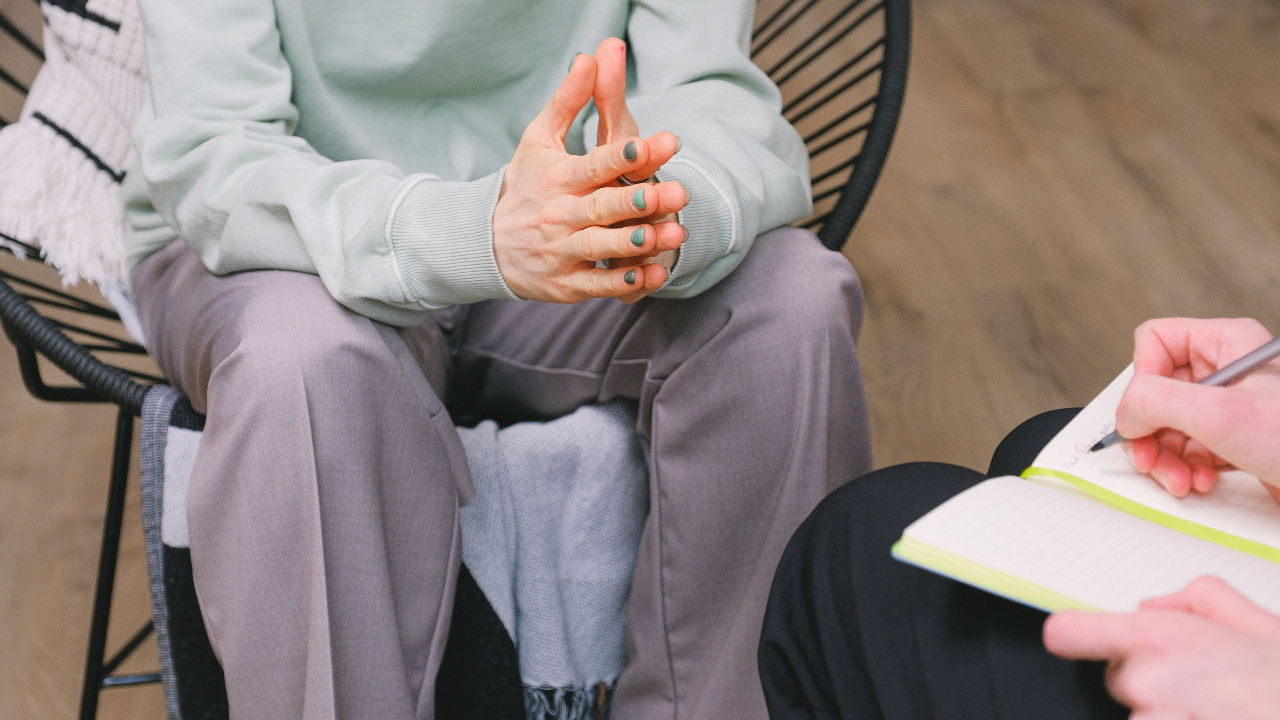Coming Prepared to Your First Therapy Session
It’s both scary and exciting to finally take the first step and commit to therapy. Prioritizing your mental health is a wonderful thing, but the first therapy session can also be intimidating. You might not know what to do; should I prepare anything? Am I supposed to fill stuff out? What will this really look like?
As a therapist, I’ve seen these worries play out in real time, and it makes sense. No one tells you what to expect. In this article we’ll break down what you can generally expect from a first therapy session, and how to best prepare.
What can I expect during my first therapy session?
While every therapist will have their own style and approach, there are a few things you should expect every therapist to go through.
Breakdown of Confidentiality
Before you get into your experiences or background, a therapist should absolutely take you through confidentiality. Confidentiality is a cornerstone of therapy. It means that anything share during sessions is kept private and not disclosed to others without your consent, except in a few specific situations.
A therapist should break down this definition, as well as its exceptions, which usually involve cases where there’s a risk of harm to you or others, or if the therapist is legally required to share information (like in the case of abuse or a court order).
You can feel free to ask them any questions you have about the limits of confidentiality, especially if you have any specific scenarios you anticipate might apply to you.

General Approach
Most therapists will break down their general approach. This includes the type of therapy they use and how they plan to tailor it to your needs. They may explain how they structure sessions, how often they recommend meeting, and whether they assign homework or exercises to complete between sessions.
If you’re in a structured therapy environment (like a public organization or a hospital), they will also break down how the system works, specific boundaries, and length of treatment. Understanding this can help you feel more comfortable and set clear expectations from the get-go, creating a collaborative space where you feel heard, understood, and supported.
Presenting Concerns and Other Information
A therapist will almost certainly ask you some variation of the question “what brings you in?”. They want to get to know why you booked the session, your concerns, and possibly your goals. You don’t have to worry about getting too specific; both concerns and goals evolve and shift throughout the process of therapy. The question is meant to address where you are in the moment, and if you’re not totally sure, that’s completely okay (we'll discuss how you can answer this question later in the article).
Alongside learning about your presenting concerns, it is very likely that a therapist will begin to ask you about different areas in your life, like your living situation, your job or school status, your relationships, and your history of mental health services. This will give them a better picture of what your life looks like, and how treatment can be tailored to you.
Although openness is encouraged, it can be difficult to talk about your life right away. You are absolutely allowed to deny answering any question you’re not yet comfortable going into, or ask why some questions are necessary.
Rapport Building
A good therapist will try to make you feel comfortable and connected throughout the process. Being in therapy for the first time can be really overwhelming, and creating a safe space is vital to the work you’ll be doing.
This involves building trust, showing empathy, and ensuring you feel heard and respected. A therapist may use open body language, active listening, and gentle questioning to encourage you to share without judgment. Over time, this foundation of trust and understanding becomes a crucial part of your progress, making it easier to explore challenging topics and build the skills needed for long-term change.
How do I prepare for my first therapy session?
Although therapy requires active involvement from the client, a good therapist will help you feel “carried” during those first sessions. They’ll guide the conversation and provide structure, easing you into the process without overwhelming you. With that being said, there are things you can do to feel more prepared during your first therapy session.
Fill Out Necessary Forms
Make sure you’ve filled out any necessary intake documents prior to your appointment. A therapist will need your consent for treatment prior to beginning your work together, as well as necessary details, like emergency contacts and address.
Some organizations will require you to fill out more lengthy intake forms. Make sure you understand what is required prior to your appointment; especially if you're working in a public context, where preparation may be tied to your eligibility in different programs.
Reflect on What You Want from Therapy
Some folks know exactly what they’d like to talk about as soon as they come in, but others aren’t entirely sure. Even if you’re not entirely sure why you’re coming into therapy, it’s really useful to reflect what you’re looking to get from therapy. If you’re having trouble with it, break it down into smaller pieces that feel more approachable. For example:
If you feel bad but don’t know why, describe the emotions as best as you can. Can you pinpoint what triggers these feelings? Is there a certain time of day, place, or event that makes them stronger? Are they affecting your relationships, work, or your ability to enjoy things you used to?
If you recognize you’re in a dysfunctional relationship but can’t quite define what's wrong, take some time to think about what arguments or interactions look like. What do they sound like, and how do you feel during or after them? Focus on what you’d like that relationship to look like. What do you wish there was more of (e.g., understanding, respect, emotional support)?
If you feel disconnected from others, but don’t know exactly why, ask yourself: When did you last feel close to someone? Is it that you’re not talking as much, or that the conversations feel shallow? Are you avoiding social situations? Do you feel like you're being misunderstood, or maybe there's a lack of emotional connection?
If you know something’s wrong, but can’t place your finger on what, break down what you do know and what’s observable. You don’t have to have all the pieces put together perfectly immediately, a therapist will begin to help you peel some of the layers back with time.

Prepare to Share
While you don’t have to divulge all information, all at once, be prepared to share your story. If you have a hard time opening up or trusting new people, share that. Therapy is most effective when you’re open and honest, but it’s completely normal to feel nervous about sharing deeply personal things. You don’t have to dive into the hardest issues right away. Just try to be as open as you can in the moment. It’s okay to say things like:
“I'm not sure where to start.”
“This feels really hard to talk about.”
“I'm not ready to talk about this yet.”
Ask Questions
Therapy holds a lot of mystique; there is nothing obvious about it that you “should” know. Ask as many questions as you want or need to, including:
- Cost of session
- How frequently you should go
- What treatment tends to look like
- What qualifications the therapist has to work with your issues
- What type of therapy the therapist practices
For a more comprehensive list, check out 22 Questions to Ask Your New Therapist.
Trust Your Gut
It might feel as though you’re supposed to instantly connect with your therapist, but that’s not always the case, and that’s okay. Like any relationship, the therapeutic alliance takes time to build.
Still, your instincts matter. If something feels off; you don’t feel heard, the therapist’s style doesn’t match what you need, or you’re just not sure it’s a personality match, it’s okay to acknowledge that. Feeling uncomfortable because you're exploring difficult topics is different from feeling fundamentally unsafe or unseen. You’re allowed to say, “this doesn’t feel like the right fit”, and look for someone who better matches your needs.
Be Open to New Experiences
Therapy offers the wonderful opportunity for change. This requires an openness to thinking about and doing new things. That might include discomfort or moments where things don’t immediately make sense. It’s okay to feel unsure or even a bit frustrated, especially in the beginning. As you get to know your therapist and develop trust, the process will become easier and more meaningful.
Remember: Your therapist is there to support you. They are trained to help you navigate the unknowns and challenges you may face. The first session is just the beginning, and it’s totally normal to feel a mix of nervousness and curiosity.

Give Yourself Props
Starting therapy isn’t easy, but it can be extremely rewarding. Pat yourself on the back for starting this process and know that it can breed some really positive results.
Whether you’re feeling uncertain, hopeful, or somewhere in between, know that you’ve already done something meaningful by deciding to explore this path. Take it one session at a time, and trust that progress (however slow or subtle) is still progress.
If you’re ready to start your therapy journey, reach out. Book a free 15-minute discovery call and get matched to a therapist as soon as this week.






